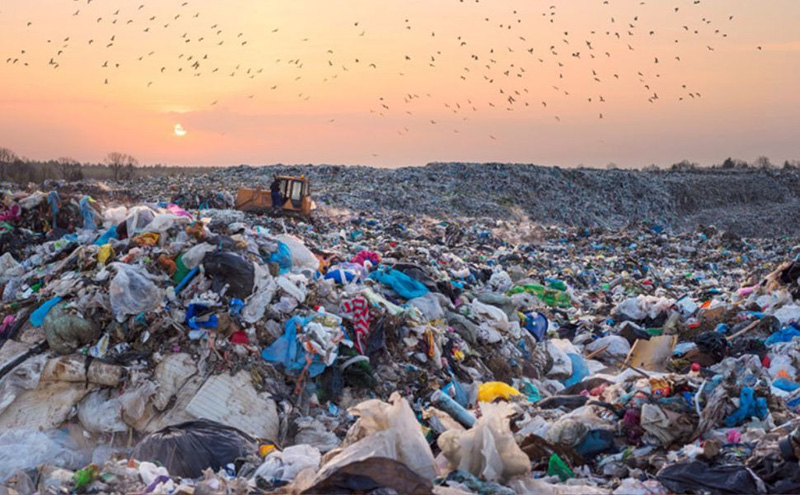Single-use plastic products and non-biodegradable plastic bags are increasing in use and disposal. In order to limit the Law on Environmental Protection 2020, Decree No. 08/2022/ND-CP also stipulates a roadmap to limit the production and import of single-use plastic products, non-biodegradable plastic packaging and products and goods containing microplastics.

Strengthening plastic waste management
According to the International Union for Conservation of Nature (IUCN) report of the Program on Monitoring and Evaluation of Plastic Waste in Vietnam Coast in 2020, Vietnam is one of the countries with the highest amount of solid waste discharged into the sea. Each year, the amount of solid waste discharged into the sea is about 0.28 - 0.73 million tons, equivalent to 6% of the total amount of ocean plastic waste in the world (out of 20 countries studied). Only two big cities are Hanoi and Ho Chi Minh City. In Ho Chi Minh City, every day, about 80 tons of plastic and non-biodegradable plastic bags are released into the environment.
It is worth mentioning that, with such a large amount of plastic waste (CTN) discharged into the environment, but the classification, collection, recycling and treatment of CTN is still limited, only about 11 - 12% of the amount of waste and bags. nylon is treated and recycled in accordance with regulations, the rest is mainly buried, burned and discharged into the environment. While, solid waste arising from people's daily life and consumption is mostly unsorted at source, waste and plastic bags are collected from households, markets and public areas and transported and treated. together with domestic solid waste (CTR).
In order to reduce, reuse, recycle and treat plastic waste, and prevent and combat ocean plastic waste pollution, the Law on Environmental Protection 2020 has dedicated 01 article (article 73) stipulating: Organizations and individuals have the responsibility to limit the use, reduce, classify and dispose of single-use plastic products and non-biodegradable plastic packaging according to regulations; Do not dispose of plastic waste directly into drainage systems, ponds, lakes, canals, canals, rivers and oceans.
Plastic waste generated from marine tourism and service activities, maritime economy, oil and gas exploitation and marine mineral resources, aquaculture and fishing must be collected, stored and transferred to the agency. facility with recycling and disposal functions.
Environmentally friendly products, substitutes for single-use plastic products and certified non-biodegradable plastic packaging substitutes are entitled to incentives and support in accordance with the law.
Plastic waste must be collected, classified for reuse, recycling or treated in accordance with the law. Non-recyclable plastic waste must be transferred to a regulated disposal facility. Plastic waste generated from economic activities at sea must be collected for reuse, recycling or treatment and must not be discharged into the sea.
The State encourages the reuse and recycling of plastic waste to serve the production of goods, construction materials, and traffic works; encouraging research and development of systems for collecting and treating floating plastic waste in seas and oceans; have policies to promote the reuse and recycling of plastic waste.
Provincial-level People's Committees shall direct the collection and treatment of plastic waste in the locality; propagating and advocating the restriction of the use of non-biodegradable plastic packaging and single-use plastic products; propagate about the harmful effects of disposing of fishing gear directly into the sea and plastic waste on the ecosystem.
The Government stipulates a roadmap to limit the production and import of single-use plastic products, non-biodegradable plastic packaging and products and goods containing microplastics.